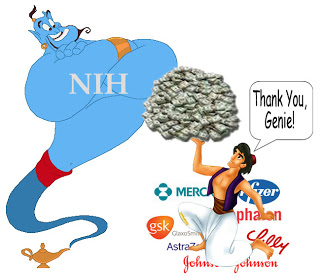For the first time ever, scientists are using computers and genomic information to predict new uses for existing medicines. A National Institutes of Health (NIH)-funded computational study analyzed genomic and drug data to predict new uses for medicines that are already on the market (see “NIH Program Predicts New Uses for Old Drugs“).
It is predicted that this discovery will put greater emphasis “on so-called drug repositioning as a way of lowering the costs of drug development and getting therapies to patients more quickly,” according to a Wall Street Journal article (here).
There’s only one catch: “an advantage of finding repurposed drugs is that, since they are already approved, doctors can prescribe them off-label for patients,” says WSJ. “This opens the door to very low-cost, individualized personal therapies,” said Yves A. Lussier, a professor of medicine and engineering at the University of Illinois at Chicago who wasn’t associated with the study.
Yeah, but if the drug is too old — ie, off-patent — no branded drug company will be interested in getting the drug approved for a new indication UNLESS a new USE patent can be obtained. THAT’s exactly what Pfizer did to extend the patent life of VIAGRA (see “Double-Dip Viagra Patent Means No Recession for Pfizer“).
QED









![6 Digital Tools at the Center of Healthcare Digitalization [INFOGRAPHIC]](http://ec2-54-175-84-28.compute-1.amazonaws.com/pharma-mkting.com/wp-content/uploads/2021/04/6DigitalTools_600px-100x70.jpg)




